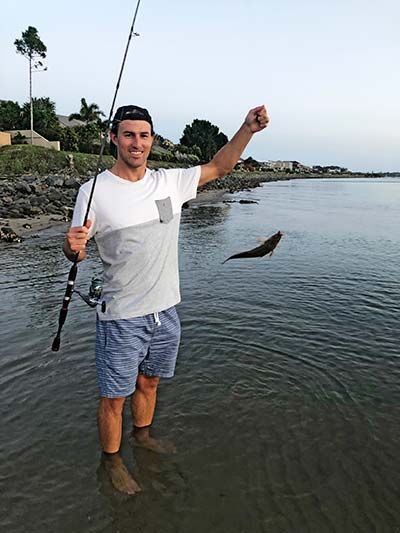Ask Paul: I'm 30, am I still on track to retire early despite COVID-19?
By Paul Clitheroe
I am 30 years old working in a stable government job earning about $120,000 gross.
I have about $125,000 in a self-managed share portfolio (ASX traded) that includes some broad international exchange traded funds, $25,000 in an international managed fund, $60,000 in peer-to-peer lending and $100,000 cash.
I have no debts and about $1000 a month in outgoings. I add $250pm to my international managed fund, $200pm to P2P lending, $160pm to super and save $1600pm cash.
I have a partner and all finances are kept separate and there is no plan to marry or have children in the near future. I have no immediate plans to buy property, but in the next five years would like to own something.
I plan to add another $25,000 to my self-managed share portfolio this year.
Is there something else I should consider to help grow my investment portfolio with the aim of retiring by 60? - Robert
Well, Robert, since you emailed me, a lot of water has flowed under the bridge! It would have been difficult for us to paint this scenario just a couple of months ago, but here we are.
For nearly 40 years, my thoughts on money issues have been based on commonsense, an acceptance that risk and return are a pure money truth and a pretty good understanding of economic history. My focus is also very much on long-term outcomes, where history gives us reasonable certainty.
So my advice to you today is not a lot different from what it would have been before COVID-19, but a global pandemic certainly means we need to look at some shorter-term factors.
First, your stable government job is gold. Your secure income becomes a powerful weapon, and the savings from it will buy more investment value today. I am not concerned about your existing investments.
The long-term outlook for shares is sound. You have time in your favour and I would strongly suggest you keep adding to your portfolio.
A shorter-term tactical decision needs to be made about your cash.
At age 30, adding cash to your portfolio while prices are down makes a lot of sense, so as well as the $25,000 you would add normally during the year, do you add a chunk of your cash? The answer to this is personal. Some may prefer to hold cash reserves during a downturn, and while cash is a terrible long-term asset it is powerful in tough times.
Property is also likely to fall. Some people are saying around 30% is possible. That makes a good headline, but I am not so sure.
While the huge leap in unemployment is terrible news, the vast government support packages have never been seen before in a crisis. Also our population is growing strongly, typically by around 350,000 a year. This is after our normal annual death rate of about 160,000 people.
So for our population to be stable this year, we'd need an extra 350,000 or so people to die on top of "normal" deaths. Thankfully, our health experts are not projecting anywhere near this number, so I think it is reasonable to assume our population will be bigger, not smaller. This and jobs are the primary drivers of demand for goods, services and property.
Interest rates are also incredibly low, so while you have no immediate plans to own property I'd suggest you have a think about what your strategy would be if there is a reasonable fall in values in an area you would buy in. If for now property remains a "no", that is fine, you have plenty of time. But in that case, I would suggest you think about dollar-cost averaging some of your cash into your share portfolio.
The part of your portfolio that could also be impacted by the pandemic is peer-to-peer lending. Obviously it won't be a problem if the peer you are lending to is in a secure job like you. But asset values, in particular businesses, may have some really savage downgrades. I would urge caution here and ensure any
P2P lending is going to someone offering appropriate security for the times we live in.
As a 30-year-old in a secure job, with no debts and solid assets, the most important thing you, your partner, family and friends can do is to stay healthy. That done, your finances and the actions you are taking have you on track for financial independence by 60, while the drop in value of good assets does present you
with opportunity.
I love your photo - if it all turns to mud, fishing may be the way to keep food on the table!
Get stories like this in our newsletters.



